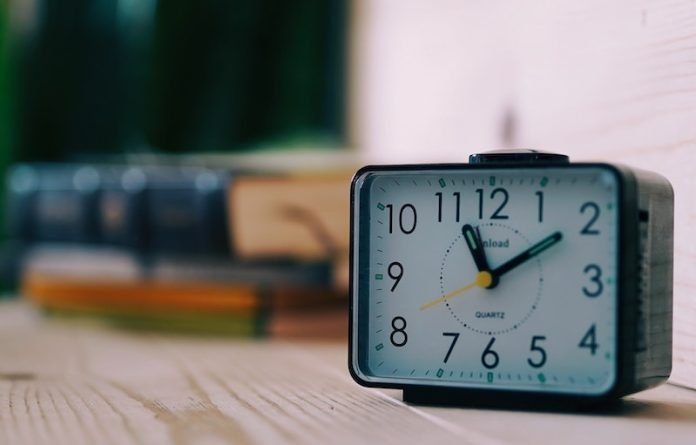
In a study from Cornell University, scientists found ‘wrinkles’ in time experience are linked to the heartbeat.
They found that our momentary perception of time is not continuous but may stretch or shrink with each heartbeat.
The research builds evidence that the heart is one of the brain’s important timekeepers and plays a fundamental role in our sense of time passing—an idea contemplated since ancient times.
Time perception typically has been tested over longer intervals, when research has shown that thoughts and emotions may distort our sense of time, perhaps making it fly or crawl.
In the study, the team asked if our perception of time is related to physiological rhythms, focusing on natural variability in heart rates.
The cardiac pacemaker “ticks” steadily on average, but each interval between beats is a tiny bit longer or shorter than the preceding one, like a secondhand clicking at different intervals.
The team harnessed that variability in a novel experiment. They tested 55 study participants—ages 18 to 21, with no history of heart trouble.
They were monitored with electrocardiography, or ECG, measuring heart electrical activity at millisecond resolution.
The ECG was linked to a computer, which enabled brief tones lasting 80-180 milliseconds to be triggered by heartbeats. Study participants reported whether tones were longer or shorter relative to others.
The findings showed what the researchers called “temporal wrinkles.” When the heartbeat preceding a tone was shorter, the tone was perceived as longer.
When the preceding heartbeat was longer, the sound’s duration seemed shorter.
These results demonstrate that the cardiac dynamics, even within a few heartbeats, is related to the temporal decision-making process.
The study also showed the brain influences the heart. After hearing tones, study participants focused their attention on the sounds. That “orienting response” changed their heart rate, affecting their experience of time.
The team says the heartbeat is a rhythm that our brain is using to give us our sense of time passing and that is not linear—it is constantly contracting and expanding.
The connection between time perception and the heart suggests our momentary perception of time is rooted in bioenergetics, helping the brain manage effort and resources based on changing body states including heart rate.
If you care about heart health, please read studies about how drinking milk affects risks of heart disease, and herbal supplements could harm your heart rhythm.
For more information about heart health, please see recent studies about drinking coffee to prevent heart disease and stroke, and results showing Omega-3 fats may lower risk of irregular heart rhythm.
The study was conducted by Saeedeh Sadeghi et al and published in Psychophysiology.
Copyright © 2023 Knowridge Science Report. All rights reserved.



